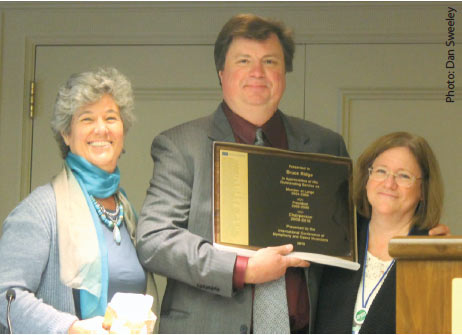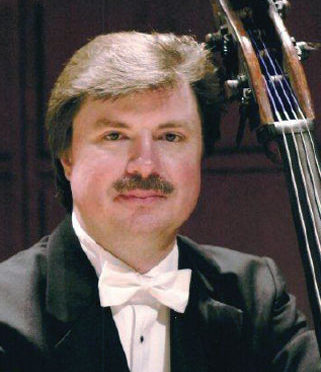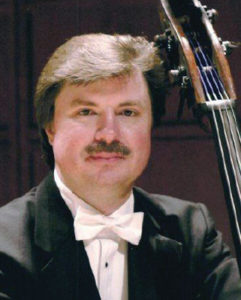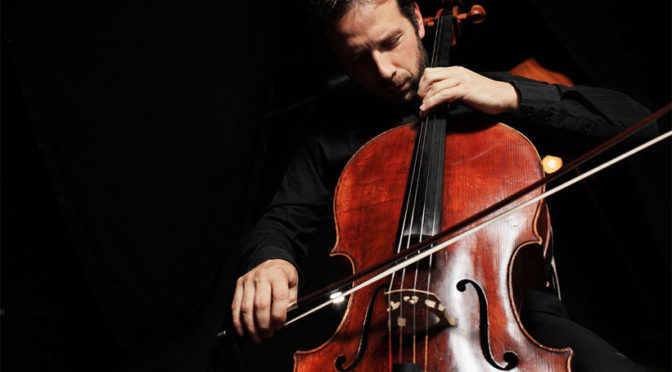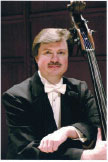by Laura Ross, ICSOM Secretary and Member of the Nashville Symphony and Local 257 (Nashville, TN)
The 54th International Conference of Symphony and Opera Musicians (ICSOM) Conference was held August 24-27, at the Loews-Madison Hotel in Washington, DC. ICSOM resident orchestras of the John F. Kennedy Center for the Performing Arts—National Symphony Orchestra and the Kennedy Center Opera House Orchestra—and Local 161-710 (Washington, DC) hosted the conference.
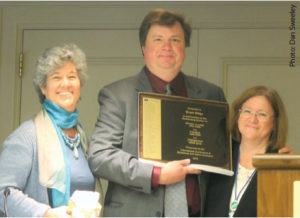
(L to R): Newly-elected ICSOM Chair Meredith Snow, former ICSOM Chair Bruce Ridge, and ICSOM Secretary Laura Ross.
As part of our annual service activity, delegates, guests, and Local 161-710 President Ed Malaga volunteered to perform and serve dinner at the Central Union Mission. That evening, ICSOM President George Brown of the Utah Symphony and Local 104 (Salt Lake City, UT) and ICSOM Counsel Kevin Case of Local 10-208 (Chicago, IL) moderated a Negotiating Orchestras workshop.
Following a new delegate breakfast, the conference began Wednesday morning with welcoming remarks and addresses by ICSOM Chair Bruce Ridge of the North Carolina Symphony and Local 500 (Raleigh, NC) and George Brown. This was Ridge’s final speech as ICSOM’s leader. For 10 years, Ridge battled negative press in his writings, speeches, and visits to ICSOM orchestras. He talked about the many orchestra successes and the impact of the arts on communities. He encouraged musicians to engage face-to-face with donors and audience members.
Orchestras reported on difficult negotiations, including the Fort Worth Symphony Orchestra, which went on strike September 8, after 15 months of fruitless negotiations. Orchestra members from Australia, the Netherlands, and England shared information about how their orchestras are run and financed. General Secretary of the International Federation of Musicians (FIM) Benoît Machuel spoke about the 2017 FIM Orchestra Conference in Montreal, Quebec.
The AFM was well-represented with presentations by Legislative-Political Director Alfonso Pollard, President Ray Hair, and the Symphonic Services Division (SSD). Retiring SSD Negotiator Nathan Kahn received a standing ovation for his service. Randy Whatley of Cyprus Media Group shared information in a presentation and breakout session about how to engage with donors. ICSOM General Counsel Kevin Case’s presentation on bullying in the workplace and a breakout session with Federal Mediator Javier Ramirez were informative. AFM SSD Electronic Media Director Debbie Newmark led a third breakout session.
A joint concert by musicians of the National Symphony and Kennedy Center Opera House Orchestra was followed by a reception. Filmmaker John Beder shared results of a survey on performance anxiety and exhibited the first 20 minutes of his documentary Composed.
The conference also explored hearing issues with a moderated discussion by Mac Whitley, chief sound engineer of the Tennessee Performing Arts Center, and DC Valentine, sound engineer of the John F. Kennedy Center for the Performing Arts. It was followed by a presentation from Dr. Heather Malyuk of Sensaphonics. She and her associate, Wendy Cheng, founder of the Association of Adult Musicians with Hearing Loss (AAMHL), spoke about average symphony instrument decibel levels, types of hearing loss, questions to ask during annual hearing exams, the use of earplugs and in-ear monitors, options for musicians choosing hearing aids, cochlear implants, and the use of assistive listening devices.
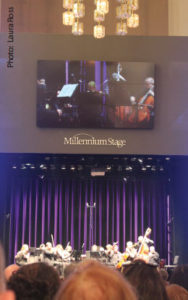
On August 24, ICSOM Delegates attended a Millennium Stage concert at the John F.
Kennedy Center for the Performing Arts, followed by an Opening Reception in
the Kennedy Center Atrium.
Meredith Snow of the Los Angeles Philharmonic and Local 47 (Los Angeles, CA) was elected ICSOM Chair by acclamation. Treasurer Michael Moore of the Atlanta Symphony Orchestra and Local 148-462 (Atlanta, GA), Senza Sordino Editor Peter de Boor of the Kennedy Center Opera House Orchestra and Local 161-710, and Member-at-Large Paul Gunther of the Minnesota Orchestra and Local 30-73 (Minneapolis-St. Paul, MN) were re-elected. Member-at-Large positions vacated by Snow’s election and Jennifer Mondie’s (National Symphony Orchestra and Local 161-710) decision to step down, were filled by the election of Dan Sweeley of the Buffalo Philharmonic Orchestra and Local 92 (Buffalo, NY) and Kimberly Tichenor of the Louisville Orchestra and Local 11-637 (Louisville, KY).
Resolutions adopted at the conference honored former AFM Chief Operating Officer Lew Mancini, former IM Managing Editor Antoinette Follett, former ICSOM General Counsel Susan Martin, AFM Negotiator Nathan Kahn, Regional Orchestra Players Association (ROPA) President Carla Lehmeier-Tatum, Theater Musicians Association (TMA) President Tom Mendel, and Jennifer Mondie.
Another resolution honored Bruce Ridge for his service as member-at-large and president, as well as his decade as ICSOM’s chair. Additional resolutions thanked John Beder for his work on the documentary Composed, encouraged musicians to continue spreading good news about orchestras through social media, and called on orchestra managers to identify ways to better protect musicians performing in amplified concerts. In addition, following the adoption of Resolution 20 at the AFM Convention in June, the conference adopted a resolution calling on orchestra managers to end the practice of unequal pay for subs and extras.


